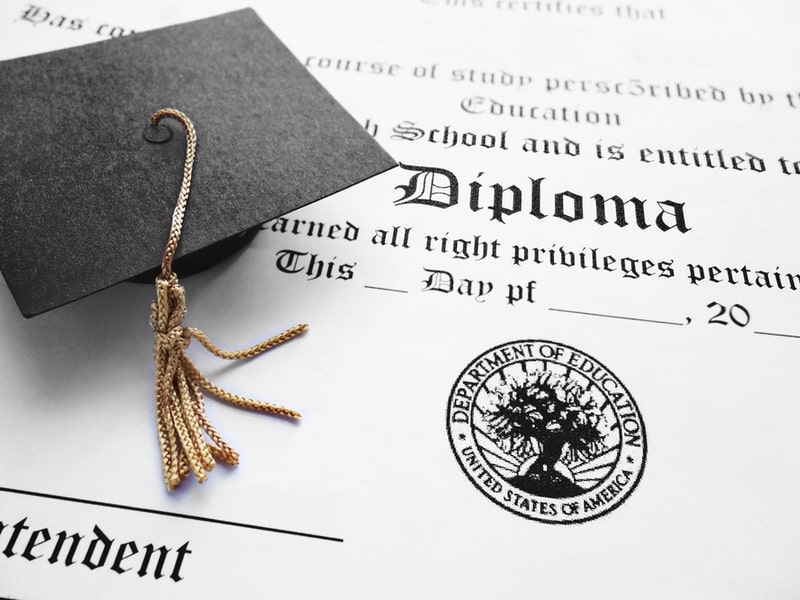Where to Evaluate International Degree in the USA
So, you have an academic credential from outside the US. Before you can leverage it to your full advantage to study, work or obtain a professional license in the land of dreams, your international degree should be evaluated.
The evaluation of an international degree or any foreign academic document is performed by a credential evaluator company, such as WES. The best agency for the job is affiliated with a professional association of evaluators. In some cases, the one for the task is the evaluation department of a school or company.
Establishing that you are qualified to study at a college, work for a company or get your hands on a professional license in the US is the first step if you want to be considered for it.
Read on to learn more about why and how to evaluate your diploma. Also, make sure to read till the end of the article, where I share my personal experience.

Why Do You Need Evaluation of an International Degree?
Individuals who have had their education outside the US, completely or partly, need to have their international degrees evaluated. This is true no matter if they are seeking further education, employment, or professional licensure in the country. For this purpose, credential evaluators are necessary.
Whether you want to go to graduate school or apply for a job, all you have to do is submit your credentials.
However, it’s not this simple if you wish to attend a school or work for a company in the US, but your academic credentials are from elsewhere on the planet.
So, in other words, if you were or are a foreign student and wish to continue your studies or get a job in the US, your credentials will have to be evaluated beforehand.
This is when credential service evaluator agencies step into the picture. As the name suggests, these are companies tasked with assessing and creating a report on international credentials, such as transcripts and degrees.
The reports that evaluators come up with, by the way, are called Educational Credential Assessment (ECA) reports.
Needless to say, the goal is to make sure that your international credentials are equivalent to the credentials of people who studied in the US.
You can think of having international degrees evaluated by the right people as a common ground for assessing and determining the worth of foreign credentials no matter the language and location.
Related Article: How to Establish Residency in Another State for College
How To Choose a Credential Evaluator Service Provider
Ensuring that the credential evaluator agency is a member of a professional association of translators and interpreters of international degrees is a must. Factors like the type of evaluation performed, cost, evaluation time and the number of years of being in the business are considerations, too.
Before having your international degree evaluated, there is one very important step that you need to take. And it’s none other than deciding which credential evaluator you should take your documents to.
Many different credential evaluator service providers exist these days.
The US Department of State (DOS) recognizes only two agencies: the Association of International Credential Evaluators (AICE) and the National Association of Credential Evaluation Services (NACES). However, it doesn’t mean that you can only approach any of these two service providers if you want to have your international degree evaluated.
As a matter of fact, the US Department of Education (USDE) does not recommend or endorse any credential evaluation service. Similarly, it doesn’t advocate any professional association of evaluators.
Here are the recommendations of the USDE when it comes to finding a credential evaluator:
- Use a credential evaluation service that is recommended by the academic institution, employer or state licensing company to which an individual is applying.
- Opt for an agency that is a member of any professional association of translators and interpreters of international degrees, such as the AICE and NACES.
- Go on the web to look for a legitimate credential evaluation service provider.
Don’t go for just any credential evaluator that you can find in cyberspace. While there are legit agencies, there are also phony ones — the ECA report it will issue will not be honored by the college, company, or licensing agency for which you are having your foreign credentials evaluated.
The following are some of the most important questions to ask a credential evaluator company:
- Which professional association are you affiliated with?
- How long have you been in the credential translating and evaluating business?
- Do you offer the particular kind of credential evaluation I need?
- Will the resulting report come in the necessary format for my intended purpose?
- How much will you charge me for evaluating my international degree?
- What is your refund policy in case I decide to withdraw my application for evaluation?
- What steps will I have to take for you to have my credentials evaluated?
- How long will it take before I obtain the report?
- What are the steps to take if I want the report to be reissued?
Which Evaluators are Best for International College Applicants?
In most instances, colleges and universities in the US carry out the evaluation of foreign documents themselves. This means that international students need not look for credential evaluation agencies. As a matter of fact, some academic institutions may not accept ECA reports from other evaluators.
Want to transfer to an institution for higher education in the US to complete your undergraduate degree? Already have an undergraduate degree from abroad and want to earn a graduate degree from a US institution?
No matter the case, it’s a must to have your international credentials or a degree evaluated beforehand.
The goal is to make sure that your academic documents are equivalent to those of students who are or were studying in the US.
From my personal experience, one of the best degree evaluators is World Education Services.
I found out about them when I was considering applying to Johns Hopkins Master’s program. It was the only company the college was partnering with at the time. Later, the WES evaluation proved helpful when applying for jobs that require college degrees.
And just recently, UCSD accepted my WES evaluation when enrolled in UCSD Extension program.
Just Before You Have Your International Degree Evaluated
Most of the time, having your international credentials evaluated is the first step that you will have to do if you wish to become a student or a part of the workforce in the US. This helps ensure that your degree is equivalent to those who got theirs in the country and have the same plan of action as yours.
The good news is that there are many international credential service providers around — all you have to do is to search the internet for them.
But before you get in touch with one, make sure that it is a member professional association of translators and interpreters of international documents, such as the AICE and NACES.
If you are applying to a US academic institution, company or state licensing company and it evaluates foreign documents itself, an ECA report from an external evaluator may not be honored.
Related Questions
How long does it take for an international degree to be evaluated?
Evaluating an international degree can take anywhere from one week to several months. The time it takes to evaluate an international degree will depend on factors such as the number of documents being evaluated, the type of evaluation being done and any additional service.
How long do ECA reports remain valid?
ECA reports by evaluators expire five years from the issuance date. In order to extend the validity of an ECA report for five more years, one must ask the credential evaluator company to provide another ECA report. Usually, logging online and ordering an additional report are the steps to take.
Disclaimer: The views and opinions expressed in this article are those of the authors and do not necessarily represent those of the College Reality Check.





